Handmade mixed creams are flooding the online market
Without a business establishment, no production license, and no quality announcement, a series of individuals easily take advantage of social networks to sell cheap “handmade” mixed creams. With advertisements such as “instant whitening”, “white in 2 days”, and a series of eye-catching edited before and after images, these creams quietly infiltrate people’s lives without going through any safety or chemical composition testing process.
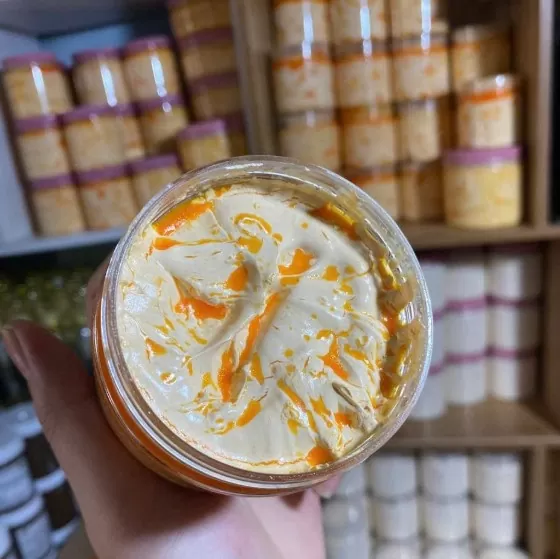 |
| Homemade ice cream is widely sold on online markets. Screenshot |
Cyberspace has gradually become a “fertile ground” for cheap mixed creams to thrive. On TikTok, Facebook, Zalo, many personal accounts with names like “Western mixed cream, authentic old cream”, “Traditional white mixed cream”… continuously broadcast live streams to sell products with high views and interactions. Under each video are hundreds of comments praising “super deals”, “guaranteed skin whitening”, “use for 2 tones lighter in a week”, creating the feeling that the product has been tested by the market.
Typically, a TikTok account named “Uyen Linh Mixed Cream” regularly posts videos recording the scene of mixing cream by hand in a plastic basin, attracting hundreds of thousands of views. The finished product is packaged in unlabeled plastic jars with no expiration date and sold for only 50,000 - 100,000 VND/jar. In a recent livestream, this person even confidently declared: “No matter how dark the skin is, it will be white, guaranteed to brighten in 5 days, if not white, money back!”.
The seller's familiar saying is " If you want to whiten quickly, just use mixed cream!". According to them, not all mixed creams are harmful, as long as "the seller is conscientious" and "mixes according to the old formula", which means using concentrated Thai creams, adding oil, ointment and additives to create a "golden shrimp" cream mixture, which has a super fast whitening effect. During hour-long live streams, the seller does not hesitate to mix the cream in front of the camera to increase trust with customers.
One seller confidently declared: “The cream at our shop is the original, authentic formula. Just looking at the jar of cream, you can tell how good it is - the cream is thick, has a strong smell, is very thick, and very strong!” These rustic, familiar words combined with word-of-mouth images of whitening effects have attracted many gullible consumers.
Posing as an online cosmetics trader looking for a wholesale source of mixed cream, a reporter from Cong Thuong Newspaper approached a Facebook account selling “old Western standard” mixed cream. After just a few minutes of discussion, the seller immediately sent a price list, affirming: “Our wholesale customers take it all, the cream is mixed at home, whitens extremely quickly, everyone loves it”. However, when asked about the cosmetic declaration, ingredient testing certificate or the name of the manufacturing facility, the seller only replied: “Homemade cream”, “taken from a familiar source”, and affirmed that “no one has responded to the sale for several years”.
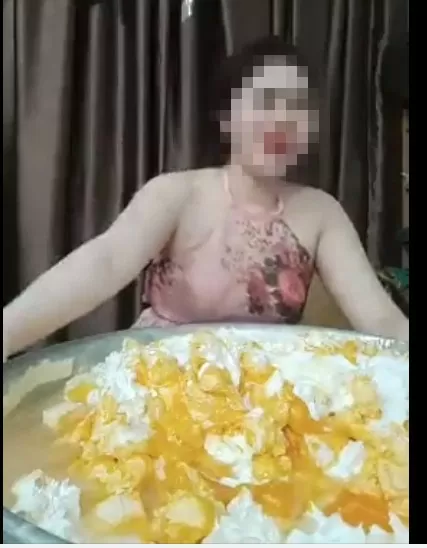 |
| The ice cream seller also livestreams the ice cream mixing for customers to watch. Screenshot |
Even when the reporter wanted to buy the cream mixing formula to make and sell himself, the seller immediately refused, affirming that the formula was a “family secret” and “not for sale or sharing with anyone”. This person also emphasized: “I only sell finished products, the formula must be mixed correctly to be white, if it is spread out haphazardly, it will be ruined and lose its reputation.”
With just a few million VND to buy floating ingredients, a phone with a camera, and a free social network account, anyone can become an “online spa owner” selling mixed creams every day. This “underground” cosmetics market thrives not only because of low investment costs, but also because of the psychology of appearance, the desire for quick whitening, and the ease of trust of consumers. Many people, even though they know that these are “home-mixed” products, still accept to use them because of the temporary effect, regardless of the risk of irritation, corticoid infection, and skin erosion.
Ministry of Health tightens management of homemade cosmetics, floating on social networks
The Drug Administration of Vietnam (Ministry of Health ) recently sent a document to the Department of Health of provinces and centrally-run cities, as well as to social networking platforms such as Facebook, Zalo, TikTok, YouTube and e-commerce platforms, requesting to strengthen supervision and management of production, business activities as well as advertising of homemade cosmetics, home-made cosmetics that are increasingly popular online.
According to the Drug Administration, the sale of homemade cosmetics with all kinds of designs and "miraculous" uses is rampant on the internet, posing many risks to consumers. Most of these products have unknown origins and origins, have not been announced in accordance with legal regulations, and do not meet safety and quality standards. Some products are also falsely advertised, exaggerating their uses, making it easy for consumers to "lose money and get sick".
Faced with this situation, the Ministry of Health requires local health departments to strengthen inspection and examination of cosmetic production facilities and individuals trading in the area, paying special attention to products sold via social networks. Violations such as manufacturing without a Certificate of Eligibility, selling unpublished products, advertising false content, or using false information to attract buyers... must all be strictly handled in accordance with current laws.
Along with tightening management, the Ministry of Health also emphasized the importance of propaganda and dissemination of laws in the field of cosmetics. Relevant organizations and individuals need to raise awareness and sense of responsibility, strictly comply with legal conditions in the production and trading of cosmetics. People are also advised not to arbitrarily use or buy and sell homemade cosmetics of unknown origin, which have not been licensed for circulation by competent authorities.
For social media platforms and e-commerce platforms, the Drug Administration of Vietnam recommends proactively reviewing and removing cosmetic advertising content that shows signs of violating the law, especially products without a declaration receipt number and unknown manufacturing facility. These platforms are also required to strengthen their content censorship mechanism, ensuring that they only allow the promotion of products whose origin, ingredients, quality and production facilities are clearly verified.
In addition, platforms also need to coordinate closely with authorities in providing information about violating accounts and channels when requested to serve inspection and handling work. Establishing a mechanism to warn, isolate and handle accounts that frequently post violating content is also considered an important solution in preventing the spread of poor quality cosmetic products in the current online market.
| To solve the problem of “handmade” cosmetics floating around on social networks, there needs to be a drastic intervention from the authorities, based on science and understanding of the community. Propaganda and raising awareness about safe cosmetics must be further promoted, at the same time strictly handling violations in the production and advertising of cosmetics that do not comply with regulations. |
Source: https://congthuong.vn/can-siet-chat-quan-ly-my-pham-handmade-troi-noi-tren-cho-mang-390927.html
















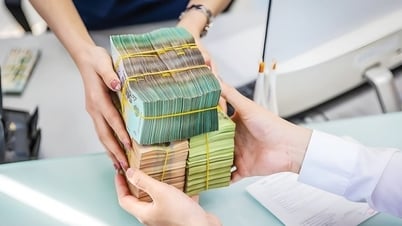






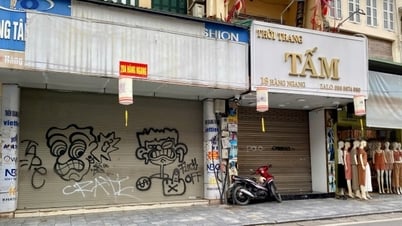
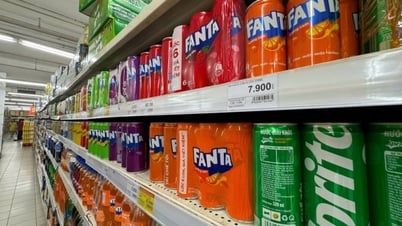


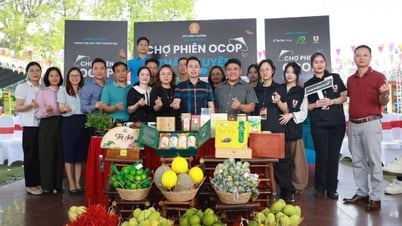
![[Photo] President Luong Cuong works with Hung Yen and Thai Binh Provincial Party Committees on implementing Resolution of the 11th Central Conference, 13th tenure](https://vphoto.vietnam.vn/thumb/1200x675/vietnam/resource/IMAGE/2025/6/6/127b735d2761484d81dcee0d7725a25b)

![[Photo] General Secretary To Lam receives Korean Ambassador to Vietnam](https://vphoto.vietnam.vn/thumb/1200x675/vietnam/resource/IMAGE/2025/6/6/a0765b7543784cbcbfe4755b67d43ab4)




























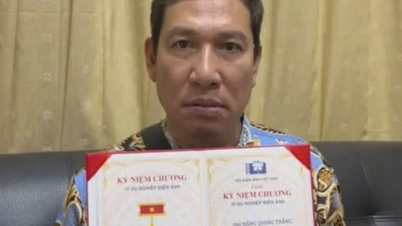





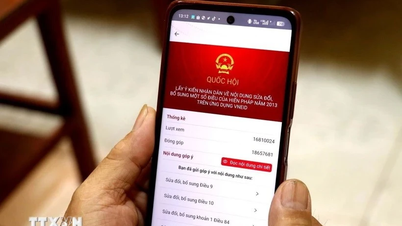



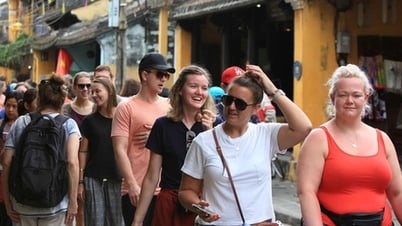

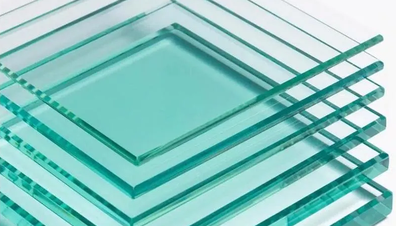






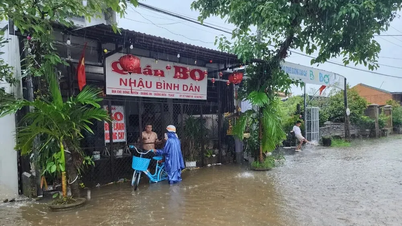





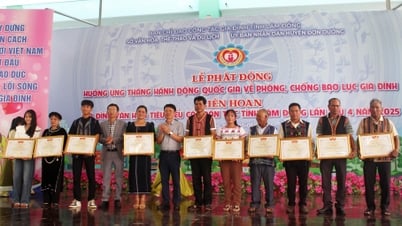





![[OCOP REVIEW] Tu Duyen Syrup - The essence of herbs from the mountains and forests of Nhu Thanh](https://vphoto.vietnam.vn/thumb/402x226/vietnam/resource/IMAGE/2025/6/5/58ca32fce4ec44039e444fbfae7e75ec)








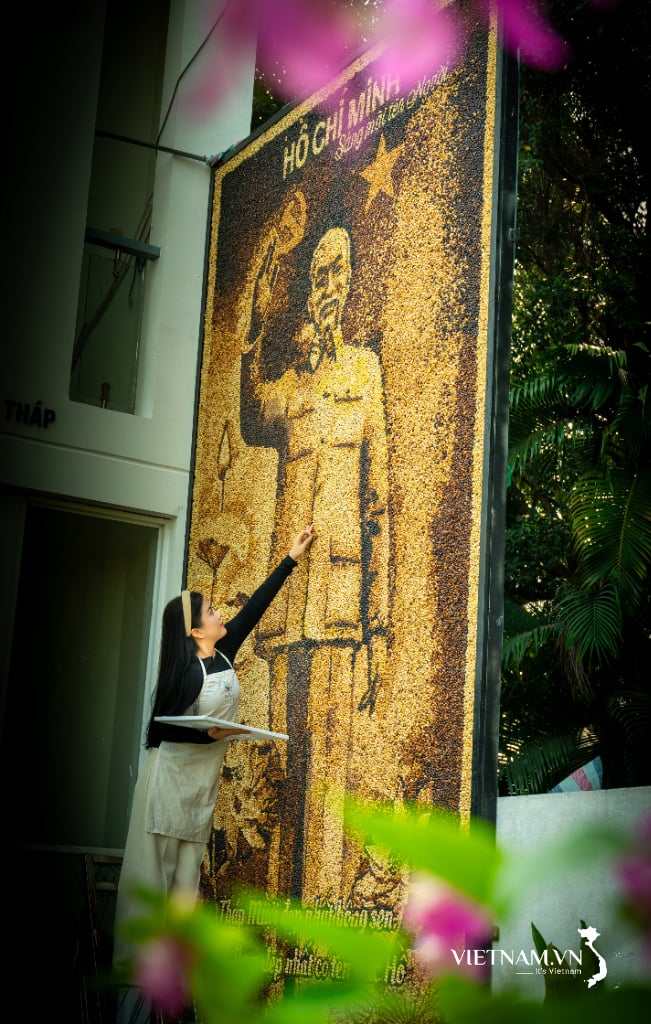
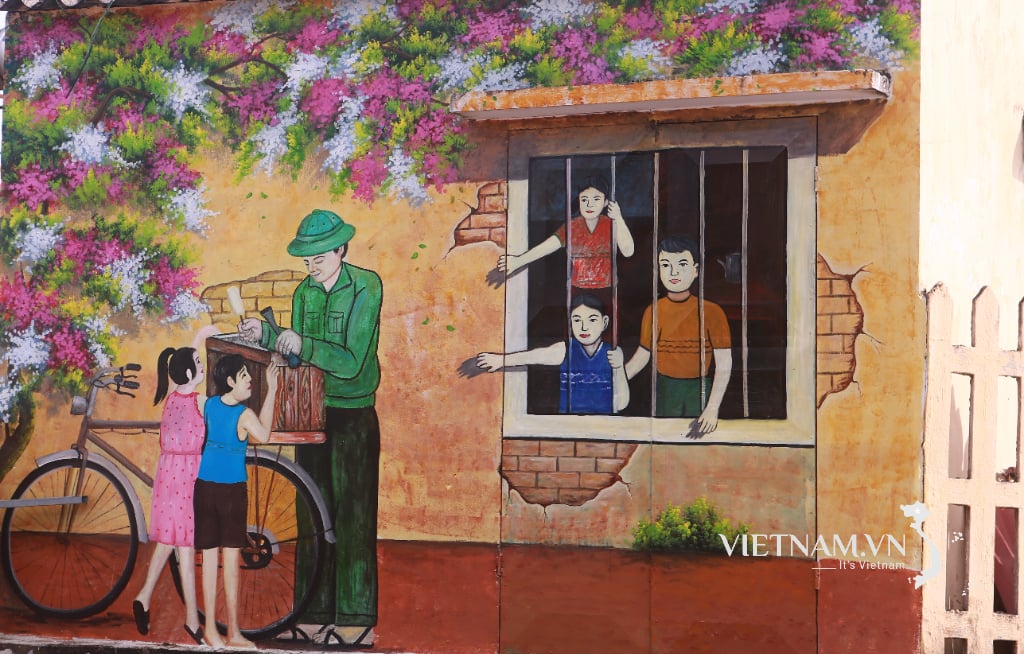

Comment (0)